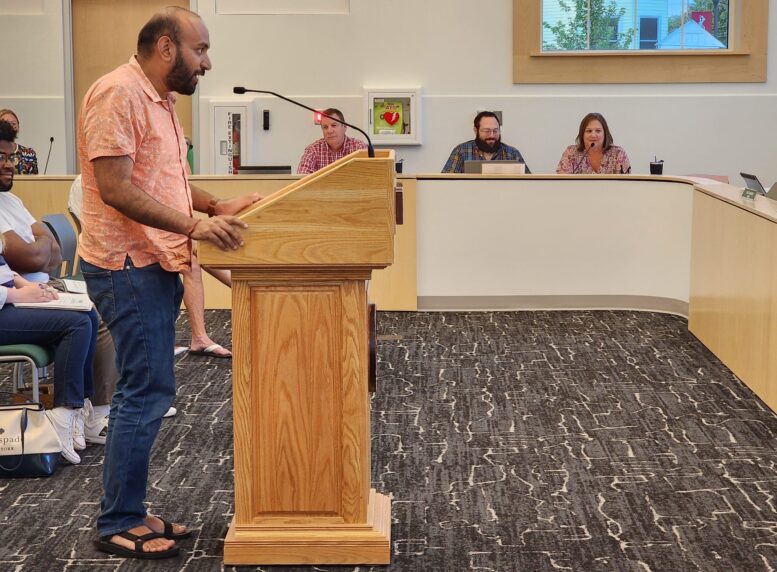By JAN LARSON McLAUGHLIN
BG Independent News
While business is booming in Bowling Green, the housing sector is stagnant – and has been for the last decade, according to the city’s Economic Development Director Kati Thompson.
“Our workforce demands have increased sharply and housing has not kept up,” Thompson told City Council on Tuesday evening.
So city leaders are contemplating some steps that may attract homebuilders. One would offer tax abatements for improvements made to properties, and the other would place a moratorium on city building fees.
Thompson explained both these programs to council, who also heard from a local resident about the lack of affordable housing in the city.
The median house price in Bowling Green is out of reach for many local residents, according to Abhishek Bhati, a member of the city planning commission who spoke to City Council on Tuesday evening.
Bhati stressed the need for affordable housing in the city. The U.S. Census reported the median household income in 2022 in Bowling Green was around $37,000. Several home sale websites like Zillow suggest the median house price in the city is $255,000 – which is 8.5% more than last year.
“There is a clearly growing gap between BG citizens’ income and the cost of house ownership,” Bhati said.
He urged City Council to find new ways to increase the stock of affordable homes, especially considering the 450 new jobs coming to Bowling Green because of the Abbott Lab manufacturing plant being built here.
“This is important because studies have suggested an increase in affordable house ownership means stronger, resilient and vibrant local communities and also increases more uniform economic growth and wealth generation,” Bhati said.
Compared to some other cities in the region, new housing in Bowling Green offers slim pickings. In 2021, there were 24 new houses constructed, then 22 in 2022, and 18 so far this year.
“We’ve been talking here in Bowling Green for so long about the need for more housing,” Mayor Mike Aspacher said last month.
Conversations with area businesses, economic development officials and Bowling Green State University leaders often circle back to the lack of housing in the community.
“That’s a common theme we hear,” Aspacher said. “We need to develop more housing options in Bowling Green.”
Thompson talked about using Community Reinvestment Areas as a tool to offer real estate tax abatements for improvements made to properties, either for new construction or remodeling.
Through the CRA program, 100% abatement over 10 years could be offered. But Thompson explained that the program will include an agreement that Bowling Green City Schools and Penta Career Center be made whole, and not lose any tax revenue.
While the CRA abatements would apply to the increase in taxes created by improvements, the current taxes remain on the books. The abatements increase the likelihood of investments in housing in the city – then the taxes are collected in perpetuity once the abatement period expires.
The CRA resolution creates the new position of city housing officer, who could suspend the tax exemptions if properties are not being properly maintained.
Thompson also explained the ordinance that would place a two-year moratorium on residential building permit fees. It is hoped that by the city dropping fees for new home construction, that builders will view construction in BG more favorably.
“It would serve as an incentive,” the mayor said.
Efforts in the past have focused on improving existing neighborhoods – and those will continue, according to Aspacher.
But the latest legislation considered by City Council is intended to increase the diversity of housing options in Bowling Green.
The fee moratorium would drop fees charged to home builders. Those fees include $1,451 for the city planning department, $275 for the public works department, and $180 for the engineering department. Those fees cover planning reviews, inspection costs, utilities and site development.
Aspacher said the financial impact of dropping the fees is worth it if the moratorium attracts new housing. Adding homes will benefit the community in many ways, he said, noting that the city consensus is that those benefits will offset the temporary revenue reductions. And with rising construction costs, it is anticipated that future homeowners will benefit from these changes.
While the fee moratorium may seem like a drop in the bucket for builders, Aspacher has heard from contractors that it would be helpful.
“I’m told that it is enough to make a difference,” Aspacher said.
After two years, the moratorium will be evaluated, the mayor said.





